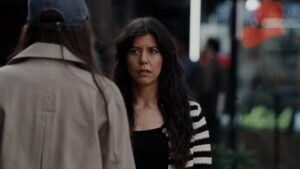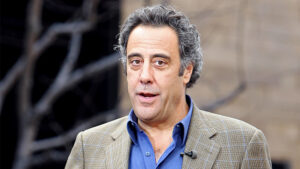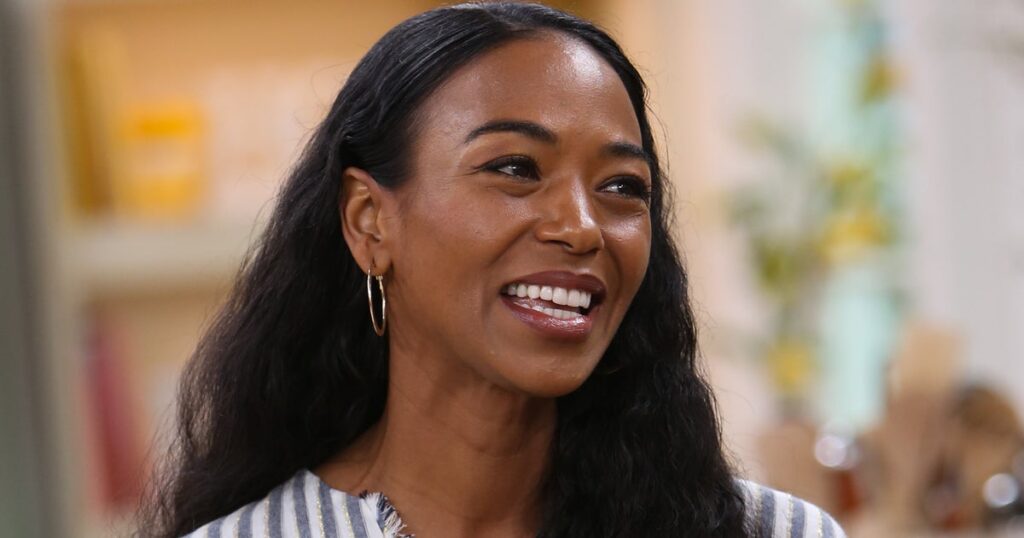Ananda Lewis, the former video jockey who hosted MTV’s ”Total Request Live” in the ’90s, has died at the age of 52. Her sister, Lakshmi, posted a photo Wednesday of Ananda on Facebook alongside the caption, “She’s free, and in His heavenly arms.”
Though no further details have been shared regarding the cause of death, Lewis revealed in an Instagram post in 2020 that she had been diagnosed with breast cancer. The TV personality released another update last fall, letting fans know the cancer had metastasized after she opted against her physicians’ recommendation to get a double mastectomy — a surgery that removes all breast tissue.
“They wanted to take both [breasts]. They wanted to do all of these big things that I was not ready for,” Lewis said in a roundtable discussion on CNN. Instead, she changed her diet, tweaked her sleep routine and made other lifestyle modifications in an effort to flush toxins out of her body. (It’s been reported that later in her cancer journey, she underwent chemotherapy.)
Here’s why so many people with cancer — like Lewis — opt for alternative treatments (like chiropractic medicine or herbal remedies) instead of radiation, chemotherapy or surgery. And how choosing an alternative path can affect your outcomes.
Many people with cancer try complementary medicine.
Lewis’ decision is part of a popular trend in which more people are pursuing alternative treatments — like herbs, botanicals, vitamins and minerals, reiki and specialized diets — instead of traditional solutions like surgery, radiation and chemotherapy.
One report found that 48 to 88% of people with cancer use complementary treatments (complementary treatment refers to alternative treatments that are done in conjunction with conventional treatment). In fact, complementary and alternative medicine is now estimated to be a multibillion dollar industry in the United States.
Scientists suspect the recent surge in interest is due to a mix of factors. When it comes to medicine, people crave self-autonomy. People fighting cancer commonly feel like their doctors make all of the decisions, and some find that complementary and alternative therapies offer them a more hands-on role in their treatment and recovery, according to Cancer Research UK.
Dr. Cary Gross, founder and director of Yale School of Medicine’s Cancer Outcomes Public Policy and Effectiveness Research Center, said some people are concerned about the side effects associated with chemotherapy. And the cost can be a huge deterrent, he added, as many procedures are “ridiculously expensive.” Some people mistrust the medical establishment and doubt their providers have their best interests in mind when recommending treatment plans. Meanwhile, growing skepticism around science, in general, has influenced the type of treatment people pursue, Gross said.
Additionally, many alternative medicine providers and manufacturers have done an excellent job at marketing their products in a way that aligns with people’s values and beliefs, evidence suggests. The advertising often falsely claims the treatments can effectively cure cancer or prolong your life, a study from 2023 found. The study’s researchers, who scanned hundreds of online ads for alternative cancer care, stated that many of the brands “exploited the hope of patients with terminal and poor prognoses by sharing testimonials of past patients who allegedly were cured or had their lives prolonged.”
The risk of death is far higher if you opt for alternative treatment in place of conventional treatments.
Research shows that people who do alternative medicine and skip the evidence-backed treatments face a two to four times greater risk of death. This is largely due to the fact that those who go this route also tend to refuse conventional cancer treatments. Another study found that those who opt for alternative options die sooner than those who adhere to evidence-based solutions.
“Generally speaking, these alternative medicines have very little, if any, evidence to support their effectiveness against cancer,” Gross said. But it’s not the ginkgo or the massage that will kill you. “It’s foregoing the actual treatment that causes harm.”
Breast cancer is very treatable if it’s caught and treated early, said Dr. Karishma Kollipara, a breast surgeon with Northwell’s Staten Island University Hospital. But if you decline surgery, for example, the cancer can spread — around the breast, to the lymph nodes and to other parts of the body. At that point, the treatment needed to cure the disease may be far more intensive, Kollipara said.
And at that point, people may need to add chemotherapy into their regimen. And the recommended surgery will likely be more invasive. In the earlier stages, surgery can be done to remove the cancer and nearby tissue in the breast, according to Kollipara. At later stages, the surgery is more invasive — people may need a mastectomy and potentially have some lymph nodes removed. “The morbidity and mortality of everything increases as the cancer progresses,” she said.
How doctors counsel patients who want to try alternative medicine.
This isn’t to say there’s no room for alternative medicine. In fact, research shows therapies like yoga, massage and acupuncture can improve people’s quality of life when they’re used alongside conventional treatments like chemotherapy. According to the National Cancer Institute, complementary therapies may help people cope with side effects such as pain, nausea and fatigue caused by conventional treatments. These treatments may also provide people with some peace of mind that they’re doing all they can to treat or cure the disease, the agency added.
Gross says it’s important to have a discussion with your care team if you’re interested in complementary medicine. They can take a look at your medical history, the treatments you’re taking, and help you weigh the risks and benefits. Occasionally, herbs can interact with chemotherapy, too, so they can let you know if there are any interactions to be aware of, he added.
Kollipara tells her patients that alternative therapies can sometimes be used in conjunction with traditional treatment. “But it doesn’t replace it,” she said. “The thing that will cure the cancer is traditional treatment.”
There is no wrong decision about how to treat cancer.
All that said, Gross said, there’s no right or wrong approach when it comes to fighting cancer. “There is nothing wrong with saying, ‘I do not want chemotherapy,’” he said.
His advice? Make sure you have all of the information at your fingertips. Then, make a decision that aligns with your goals, preferences and the facts. “The patients are in the driver’s seat,” he said.
Read the full article here








